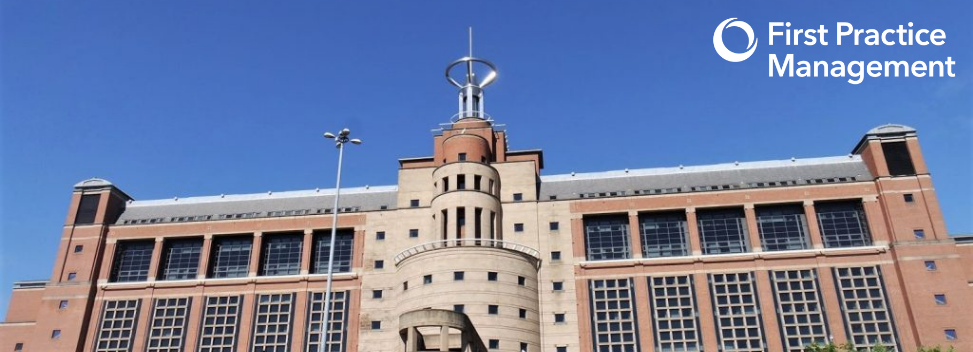
From 1st April, Integrated Care Systems will cover every area of England, and the existing CCGs will be phased out by April 2022. From a Practice Manager's point of view, it's worth finding out how it will impact your Practice, your day-to-day work, and how involved you are in the transitions and plans for the future.
These geographically-based ‘models of care’ will bring together primary, secondary, community, and other health and care services, to facilitate and co-ordinate healthcare to work in close collaborative partnerships with local councils and other organisations.
Having changed their initial designation from Accountable Care Organisations to the Integrated Care System (no doubt the US connotations did raise some eyebrows at the time), the NHS Long Term Plan set out that high on their list of priorities would be the challenge of being an organisation that is cost-effective and has the ability to collaborate at a ‘system-level’ so they can reduce wastage and any duplication.
From your operational point of view, it's useful to know how it will affect your day-to-day work - any extra funding or support, do you have to attend more meetings, another report or two to complete, or responsibility for something else? The basics you should know about your shiny new ICS should include the following;
- Who is on the partnership board? Is our practice/network represented?
- Who is the Chair?
- Is there clinical and management representation?
- Will they be engaging with me and other practices? If so, how?
- Who is accountable for what?
- Will our existing contracts change or stay the same? What about next year?
Coverage and Activities
As NHSE have described them, An ICS will cover a larger geographical area than a CCG, using a model of “systems within systems” – smaller partnerships that will focus on the local populations but working together to cover the expected ICS coverage of 1 to 3 million people.
The intention is that an ICS structure will be able to decide what activities they should be carrying out, but more importantly at what level GP Practices, in particular, will be involved and to what extent, so there will be a proliferation of terms like system, locality, sub-locality, neighbourhoods to describe it. It’s worth bearing in mind that many ICS are in the process of/newly-formed, so each area will be at differing levels of readiness.
Funding
Funding will be another key issue for practices to be aware of, something that’s always been a hurdle at the primary care level that determines how individual NHS entities can effectively collaborate.
- Does your ICS have a fully-mapped financial framework?
- Are there practical steps to describe how the contracts/payments will work?
- Transformation is a key term in the LTP - if there is funding for practices/PCNs to do this, how do they access it?
Integrated Care Provider (ICP) Contracts bring together different providers under a single contract to take responsibility for most of the health and care services in your geographical region. IF your ICS is the contract holder, then they have responsibility for providing services, either delivered by themselves or sub-contracted out to other providers.
The BMA said it is concerned that ICP contracts will undermine the GMS contract and the partnership model of general practice. If a Practice chooses to work under a fully ICP contract, there is a 'right to return' to the previous GMS or PMS contract, but the BMA has indicated that there is no guarantee they will return to an 'adequate level' of funding.
Leadership
There are so many variations of Org Charts/Trees, tables, pretty cartoon videos, etc. when you’re looking for the structure of an ICS - all you want to really know is who reports to who, and who do you talk to about what?
Clinical leadership and engagement is still central, although the BMA and some LMCs have said that they’ve only had limited if any, engagement from their local ICS, but the LTP does make it clear that there should be a commitment from every ICS that they should engage with the clinical director from each PCN in their group.
GP Federations are considered to be a good vehicle for regional engagement, and then this developed into/partnered with the PCNs (depending how they’ve been set up in your particular part of the country), and this should be tracked once the CCGs are phased out so that the transition is as smooth as possible. Having practices involved in this process would be beneficial so there’s an accountability for the needs of primary care, not just the larger hospitals and trusts.
So what’s the Plan, Stan?
The story doesn't end when the ICS begins - the next 12 months will still see some big changes regardless of how the pandemic response works out, so as the CCGs start to integrate/phase themselves out, it's worth understanding the following;
- What does the implementation/transition plan look like?
- What will be the impact on you as a practice?
- Do you or your practice representatives get a say in the process?
- Has that plan been communicated at your level?
By January this year, there were 18 ICS in operation (which become official legal entities from Thursday), and they have until April 2022 to have a workforce strategy that lines up with the requirements of the NHS People Plan. NHSE will provide the finances and ICS leaders will allocate their budgets as necessary between their different service providers in their areas.
From tomorrow there’s a new ‘model of care’ in place, but the story doesn’t end there – each ICS has to have a 5-year plan to show how they will meet local needs and priorities, so practices should engage and be as involved as possible to make their voices heard.


0 Comments